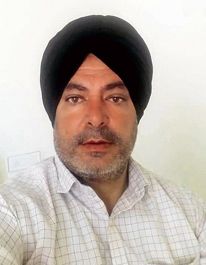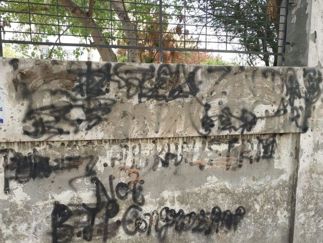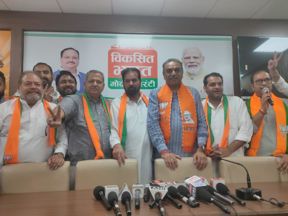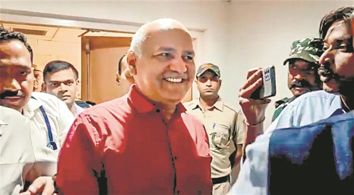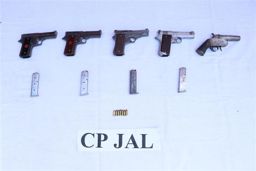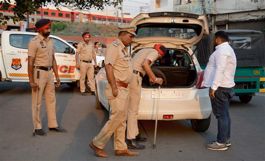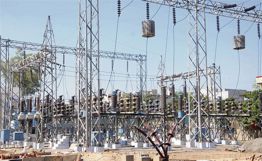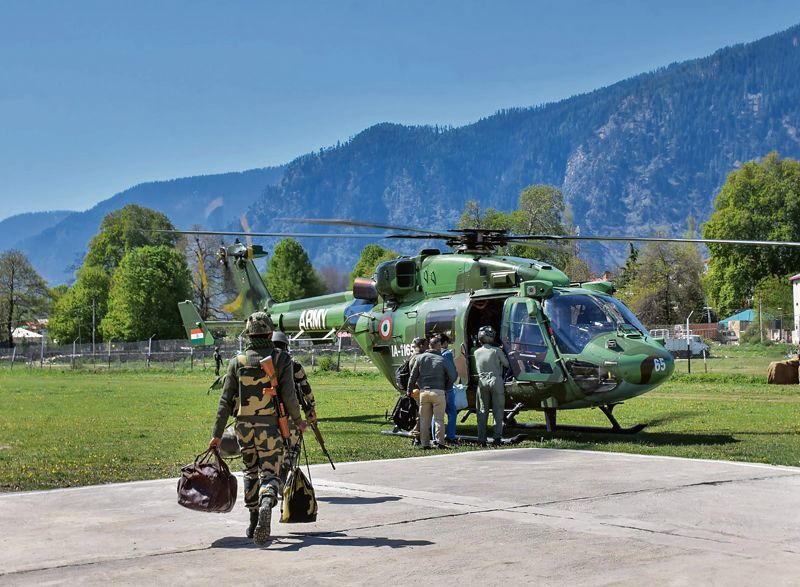
BORDER CONTEST: J&K has five Lok Sabha seats, including the post-delimitation Anantnag-Rajouri constituency. PTI
Luv Puri
Journalist and Author
POLLING has been completed in parts of the Jammu region, which has two Lok Sabha seats (Jammu and Udhampur), while the three constituencies primarily in Kashmir (Baramulla, Anantnag-Rajouri and Srinagar) and one in Ladakh will go to the polls in May. One needs to pay attention to the issues that have arisen in this border region during the ongoing elections — the first parliamentary battle in J&K and Ladakh since the abrogation of Article 370 on August 5, 2019.
Though the state-turned-UT has only five seats, J&K’s electoral impact on national politics is, at times, disproportionate. It provides an entire mosaic of issues that are leveraged in the Hindi heartland. National security concerns impacted the national elections in 2019 as well as in 1999. The Balakot airstrikes after the Pulwama terror attack gave an edge to the BJP in some states in the 2019 polls, while the victory in the Kargil War helped the party in the General Election held in September-October 1999. Many soldiers serving in J&K come from electorally significant states like Haryana, Rajasthan, Punjab, Uttar Pradesh, West Bengal and Bihar. While the BJP has repeatedly described the abrogation of Article 370 as its achievement, the narrative on this issue was relatively muted during campaigning for the Udhampur and Jammu seats that went to the polls on April 19 and 26, respectively. The matter has minimal resonance in these areas. The Congress narrative revolved around issues mentioned in its manifesto, including the promise of the restoration of J&K’s statehood.
With regard to the Lok Sabha seats primarily in the Kashmir valley, the implications of the Delimitation Commission report, released in 2022, are becoming evident. The panel merged parts of the Anantnag parliamentary seat with the Muslim-majority Rajouri and Poonch districts, which were earlier included in the Hindu-majority Jammu-Poonch parliamentary constituency. De facto, two culturally distinct Muslim-majority areas on either side of the Pir Panjal mountain range were combined to form a parliamentary constituency (Anantnag-Rajouri). Some observers viewed the previous seat, comprising Hindu-majority Jammu district and Muslim-majority Rajouri-Poonch belt, as a secularising and stabilising force in a sensitive region.
Moreover, the Anantnag-Rajouri constituency, which goes to the polls in the third phase on May 7, is proving to be a logistical nightmare for the candidates and their parties. For instance, if someone has to travel from Poonch to Anantnag, it takes around 11 hours by road, through the Jammu-Udhampur National Highway 1A or through Reasi district. The only road that connects Jammu’s Rajouri-Poonch with the Kashmir valley’s Anantnag is the historic Mughal road, but it remains snow-clad for nearly seven months.
The main stakeholders, the National Conference (NC) and the People’s Democratic Party (PDP), have strongly opposed the demand to defer the May 7 poll in Anantnag-Rajouri, even as some parties, including the BJP — which doesn’t even have a candidate for this seat — are keen on a postponement. Within the segment, the contest is between NC candidate Mian Altaf, a scion of an influential Gujjar family, and former CM and PDP leader Mehbooba Mufti. Gujjars, with at least one-third presence in Rajouri-Poonch, had opposed the granting of ST status to the Paharis, as they feared that it would eat into their reservation pie. The BJP has not fielded any candidate on the three Muslim-majority seats in J&K.
The NC is the favourite for the Baramulla and Srinagar seats. Party president Omar Abdullah, who is contesting from Baramulla, faces People’s Conference leader Sajad Lone, who has electoral influence particularly in the Kupwara area of the constituency. He and the Apni Party’s Altaf Bukhari have tried to cobble up a coalition on both seats, but the NC as well as the PDP have labelled them as proxies of the BJP. In Srinagar, the NC has fielded Aga Syed Ruhullah Mehdi, a Shia cleric, who faces the PDP’s Waheed-ur-Rehman Parra, who was arrested in 2020 and jailed for 19 months under the UAPA (Unlawful Activities Prevention Act). The NC and the PDP are seeking votes to “restore the dignity of Kashmiris” in Parliament. After a long time, Kashmir-centric issues, such as the release of political prisoners, are part of the poll discourse.
Separated from J&K as a consequence of the Jammu and Kashmir Reorganisation Act, 2019, the Ladakh parliamentary segment, facing the China-controlled Tibetan plateau and Pakistan-controlled Gilgit-Baltistan, has its own issues. The Ladakhi population includes 46.4 per cent Muslims, 39.7 per cent Buddhists and 12.1 per cent Hindus.
In terms of tangible political goals, the leadership in Leh and Kargil demands the application of a North East-centric Sixth Schedule of the Constitution for Ladakh to protect the fragile ecosystem of the region, as they fear being inundated by outsiders and industrial development. Activist Sonam Wangchuk’s campaign, which has given vivid details of the receding glaciers that feed the entire Indus basin and the impact on regional ecology, has brought international attention to the environmental issue. The impact is visible, as the BJP has dropped MP Jamyang Tsering Namgyal and given the ticket to Tashi Gyalson, who is the chairman-cum-chief executive councillor of the Ladakh Autonomous Hill Development Council in Leh. Hectic efforts among various stakeholders within the Opposition — Kargil’s prominent institutions Islamia School and Khomeni Trust School, and the Congress — are continuing to pick a joint candidate.
A cohesive and participatory relationship between the heartland and the periphery is necessary as an antidote to secessionist demands or ethnic fissures and to ensure sustainable peace. This can only be done by being sensitive to the issues that have been highlighted during the elections and that should inform policymaking in the future.
Join Whatsapp Channel of The Tribune for latest updates.
#Anantnag #Baramulla #Jammu #Kashmir #Ladakh #Lok Sabha #Rajouri #Srinagar #Udhampur






















